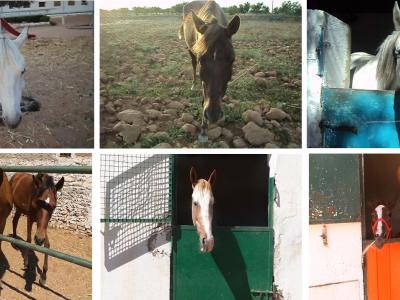Machine Learning

The data-set used in the paper titled "Short-Term Load Forecasting Using an LSTM Neural Network."
- Categories:
 1587 Views
1587 Views
This dataset is consist news articles related to COVID-19 from UK, India, Japan and South Korea newspapers.
- Categories:
 1920 Views
1920 Views
We provide a public available database for arcing event detection. We design a platform for arcing fault simulation. The arc simulation is carried out in our local lab under room temperature. A general procedure to collect the arcing and normal current and voltage wave, is designed, which consists of turning on the load, generating arc, stoping arc, turning off the load. The data is collected by a 16bit, 10KHz high resolution recorder and a 12bit, 64000Hz low resolution sensor.
- Categories:
 775 Views
775 Views
Time series univariate
- Categories:
 1250 Views
1250 ViewsAnimal recognition is an active research topic in recent years. Horse’s recognition is an important task in the world and in order to promote horse’s recognition research, the Tunisian Research Groups in Intelligent Machines of University of Sfax (REGIM of Sfax) will provide the Tunisian Horses DataBase of Regim Lab’2015 (THoDBRL’2015) freely of charge to mainly horses’ face recognition researchers and to increase total of researches done to enhance animal recognition. This Database is used in [1].
- Categories:
 973 Views
973 ViewsAnimal detection is an active research topic in recent years. Horse’s face detection is an important task in the world and in order to promote horse’s detection and recognition research, the REGIM-Lab.: REsearch Groups in Intelligent Machines, ENIS, University of Sfax, Tunisia will provide the Tunisian Horse Detection Database (THDD) freely of charge to mainly horses’ face detection researchers and to increase total of researches done to enhance animal detection.
- Categories:
 724 Views
724 ViewsSocial images analysis from social networks is considered as one of the most popular social technologies. Social images analysis is an active research topic in recent years and in order to promotes social images’s analysis research, the REGIM-Lab.: REsearch Groups in Intelligent Machines, ENIS, University of Sfax, Tunisia provides the SmartCityZen database’2016 freely of charge to social images analysis researchers.
- Categories:
 533 Views
533 ViewsSocial images analysis from social networks is considered as one of the most popular social technologies. Social images analysis is an active research topic in recent years and in order to promotes social images’s analysis research, the REGIM-Lab.: REsearch Groups in Intelligent Machines, ENIS, University of Sfax, Tunisia provides the Sm@rtCityZen social images database freely of charge to social images analysis researchers.
- Categories:
 434 Views
434 ViewsBiometric-based hand modality is considered as one of the most popular biometric technologies especially in forensic applications. Hand recognition is an active research topic in recent years and in order to promote hand’s recognition research, the REGIM-Lab.: REsearch Groups in Intelligent Machines, ENIS, University of Sfax, Tunisia provides the REgim Sfax Tunisian hand database (REST database) freely of charge to mainly hand and palmprint recognition researchers.
- Categories:
 2167 Views
2167 Views
Here are some of the software vulnerability real-world data sets.
The original real-world data sets, collected by Lin et al. (https://github.com/DanielLin1986/TransferRepresentationLearning), which contain the source codes of vulnerable and non-vulnerable functions obtained from six real-world software projects, namely FFmpeg, LibTIFF, LibPNG, VLC and Pidgin. These datasets cover both multimedia and image application categories.
- Categories:
 1529 Views
1529 Views



